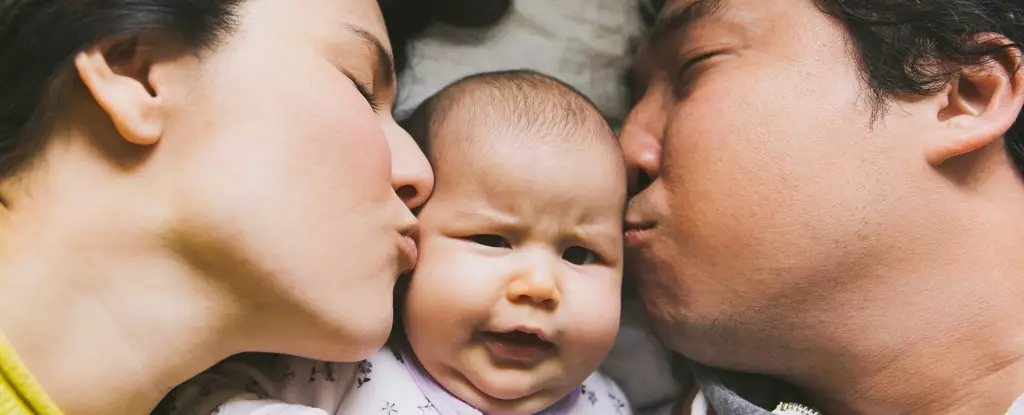In the realm of newborn care, few topics provoke as much misunderstanding as the practice of kissing infants. Despite good intentions, many well-meaning family members and friends may overlook the potential health risks inherent in their affectionate gestures. This article aims to delineate these perils, shedding light on the reasons why newborns require a particular level of care and the implications of what might seem like harmless affection.
Newborns inhabit a uniquely vulnerable space within the spectrum of human health. Upon birth, their immune systems are not thoroughly developed, rendering them notably susceptible to infections that would typically pose little threat to older children and adults. The first few months of life are pivotal; during this period, a baby’s innate immune response, which includes critical immune cells like neutrophils and monocytes, is markedly lower. This deficiency can exacerbate the consequences of infections, making conditions potentially life-threatening.
Consider the herpes virus, which is most commonly associated with cold sores in adults. In the case of newborns, however, exposure can lead to severe complications. While adults may experience only minor symptoms, the infection can swiftly escalate for a newborn, who may suffer from systemic infections affecting vital organs. This significant disparity between adult and infant responses to infections illustrates the dangers and underscores the critical need for protective measures.
In addition to herpes, there is a veritable array of pathogens that pose risks to newborns. One particularly concerning group is the intracellular pathogens, including strains of group B streptococci (GBS). These bacteria reside quietly in the gastrointestinal and genital tracts of adults, often without manifesting any symptoms. However, when these bacteria infect a newborn, they can lead to grave consequences such as sepsis, pneumonia, and meningitis. The outcomes of these infections can be dire and life-altering, emphasizing the immense risks involved.
Moreover, pathogens like E. coli can also infiltrate a newborn’s system, triggering conditions that might result in long-term health complications. For parents, this knowledge can be daunting. A serious infection can progress rapidly, and the stakes are significantly high during the initial months of a baby’s life.
Boundaries in Affection: A Necessary Conversation
For those welcoming a newborn into their lives, it is necessary to discuss boundaries surrounding physical affection. Parents should not feel uncomfortable asserting their preferences regarding who can kiss or hold their child. It is essential to foster an environment where visitors understand the risks involved and respect the parents’ wishes. The discomfort one might feel in addressing this topic pales in comparison to the potential ramifications of an illness contracted during a seemingly innocuous moment.
Visitors who truly care for the infant’s wellbeing should appreciate these precautions and recognize that they stem from love and a desire to protect. For many, the instinct is to express affection through kisses, but this eagerness must be tempered with an understanding of the significant risks involved.
While it is evident that kissing a newborn poses health risks, there are measures visitors can take to minimize these dangers if they must exhibit physical affection. Firstly, hand hygiene cannot be overstated; thorough handwashing is critical before any interaction with an infant. Visitors should also avoid kissing the baby on the mouth or face, opting instead for less risky areas such as the foot or the back of the head.
If a visitor is unwell, especially with symptoms indicative of herpes, the best course of action may be to forfeit the visit altogether. In instances where a visit cannot be avoided, wearing a mask may provide some level of defense, although maintaining distance is equally important.
While physical affection is an integral part of human interaction, when it comes to newborns, it is essential to prioritize their health and safety above all else. Understanding the vulnerabilities that infants face in their early weeks can forge a collective responsibility among friends and family to nurture and protect. By adopting a cautious approach, society can ensure that love and affection do not translate into health risks, safeguarding some of the most vulnerable members of our communities.


Leave a Reply